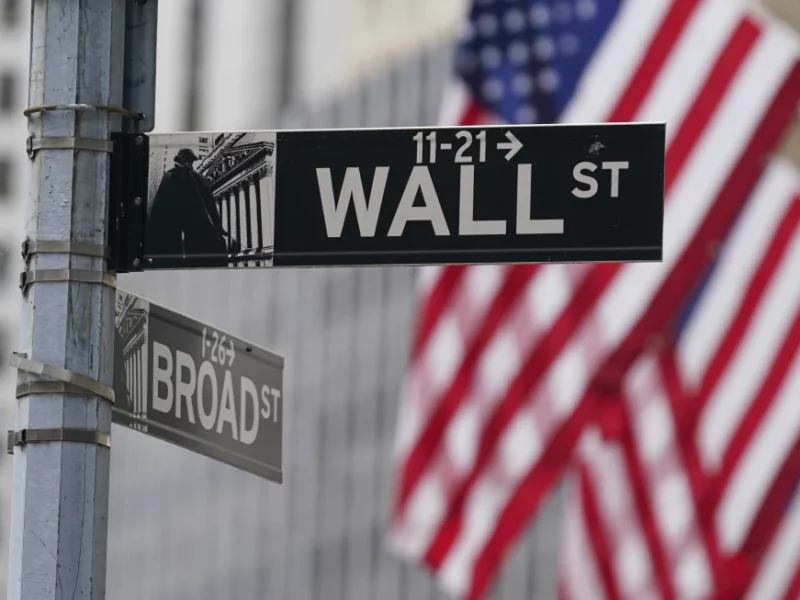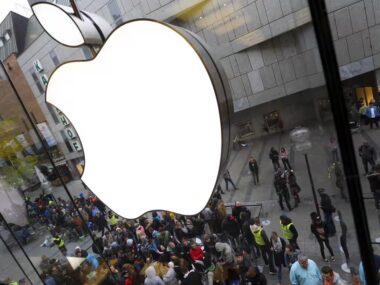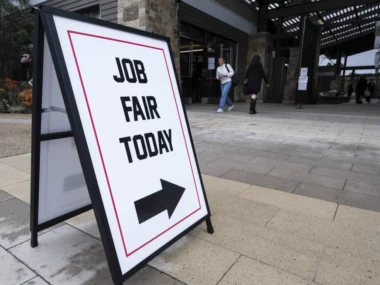Following the most recent indication that the US economy is still robust, if not perhaps too strong for the Federal Reserve’s taste, Wall Street is drifting Tuesday.
The S&P 500 recovered from an early loss to close 0.2% higher in noon trade. As of 11:45 a.m. Eastern time, the Dow Jones Industrial Average gained 91 points, or 0.3%, after losing nearly 130 points earlier in the day. The Nasdaq composite was down 0.1%.
Due to concerns about a Middle East war and its potential influence on oil prices, the financial markets have been unstable recently. However, those concerns have somewhat subsided, allowing investors to return their attention to what often determines the stock market’s long-term movements: the direction that interest rates, the economy, and corporate profits are headed in.
According to a research released on Tuesday morning, consumers spent more at American retailers last month than analysts had predicted. That is an indication of a strong economy and is probably the outcome of a still strong job market, which should increase company profits.
However, an overheated economy might also provide inflation more fuel and force the Fed to maintain high interest rates in order to choke off inflation. A similar action would decrease the value of stocks and other investments simultaneously.
The Fed is attempting to achieve a tricky balancing act by slowing the economy just enough to reduce rising inflation while preventing a devastating recession.
Bond market Treasury yields increased as soon as the report was released. By late Monday, the yield on the 10-year Treasury had increased to 4.81% from 4.69%.
But as the day went on, yields reduced their advance, giving the stock market more breathing room. Oil prices decreased, which relieved some of the pressure on inflation worries.
The stock market has been affected by a sharp increase in the 10-year yield since the summer as traders increasingly agree with the Fed’s predictions that it will likely maintain rates high for a long time. The central bank is pondering whether to raise its main interest rate one more time after recently raising it to its highest level since 2001.
All stock prices suffer from high rates and yields, but they tend to be most painful for businesses whose stock prices have been bid up due to long-term growth expectations or equities that are viewed as being overpriced. Big Tech stocks are frequently highlighted by this, and a 3.9% decline for Nvidia and a 0.8% decline for Apple were two of the biggest weights on the S&P 500.
After the U.S. government expanded its regulations to prevent China from getting cutting-edge computer chips and the machinery needed to build them, Nvidia and other chipmakers came under increased pressure.
Following their most recent earnings releases, a number of significant American corporations saw their shares rise.
With a 2.2% increase, Bank of America was contributing to the market’s leadership after exceeding Wall Street’s third-quarter earnings projections. Although it profited from increased interest rates, CEO Brian Moynihan cautioned Americans to continue to cut back on their spending after using up their pandemic-related savings.
Out of the 11 sectors that make up the S&P 500, the stocks of financial companies were generally robust and increasing the most.
Lockheed Martin increased 2.6% after announcing a summer profit that was more than analysts had anticipated.
After fluctuating between marginal gains and losses, Johnson & Johnson fell 0.4%. According to FactSet, its profit and revenue were below analysts’ predictions.
For the first time in a year, profits are expected to have increased throughout the summer for businesses in the S&P 500 index as a whole.
Wyndham Hotels & Resorts saw significant gains in the market, as its stock increased by 10.4%. Rival Choice Hotels International announced that it intends to acquire the business for $90 in cash and shares per share, valued at $7.8 billion.
Prior to Wyndham walking away, the two had been discussing a potential agreement, according to Choice CEO Patrick Pacious, but they were “in a negotiable range on price and consideration.”
Choice’s stock dropped 3.8%.
Indexes on foreign stock markets varied in Europe after climbing more firmly in Asia.
Concerns that a war in the Middle East could disrupt supplies if it included Iran or other major oil-producing nations caused the price of crude oil to swing substantially in recent weeks.
Benchmark U.S. crude prices dropped by 0.7% to $86.08 a barrel, while Brent crude, the global benchmark, was down by 0.7% to $89.05.










